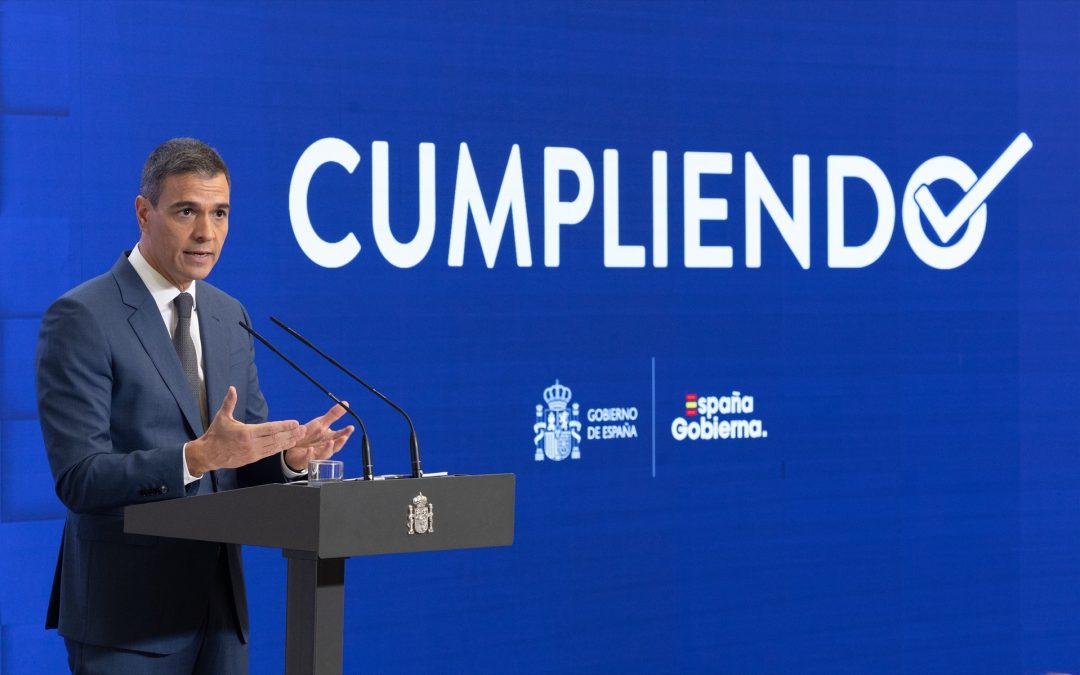Madrid – The Prime Minister of Spain, Pedro Sánchez, has highlighted that Spain is the Eurozone country that has “reduced” the inequality gap between the richest and the poorest the most since 2017.
“Spain has been the Eurozone country that has reduced the gap between the richest and the poorest the most since 2017. With two wars, with a pandemic, we have been the Eurozone country that has reduced inequality between the richest and the poorest the most since 2017,” the head of the Executive said this Wednesday during the press conference held at the Palacio de La Moncloa to assess the political course.
According to the Spanish Prime Minister, “the savings capacity of families has increased by six percentage points compared to the historical average” and “inequality and the proportion of people living below the poverty line have decreased.”
These data, he added, are “objective facts that demonstrate that wealth redistribution policies are having an increasing impact from a microeconomic perspective.”
Therefore, he claimed that with the progressive coalition government “the Welfare State has flourished and strengthened again.”
On the other hand, he valued that Spain has become “the fifth largest sustainable economy on the Planet,” despite the “furious opposition of the deniers.”
Sánchez stated that the Government has understood that adaptation and mitigation of climate change “is not only a moral duty, but it can also represent an economic and territorial development opportunity” for Spain, an “existential necessity” for a country “highly exposed, as science says, to the impacts of global warming.”
In the same vein, the Spanish head of the Executive emphasized that “it is also an opportunity to attract industries, financing, to generate new jobs, to consolidate economic and industrial developments in territories where there were none before, to improve the health of the population, to be more competitive and resilient in the global economy.” (July 31)
 go to the original language article
go to the original language article
